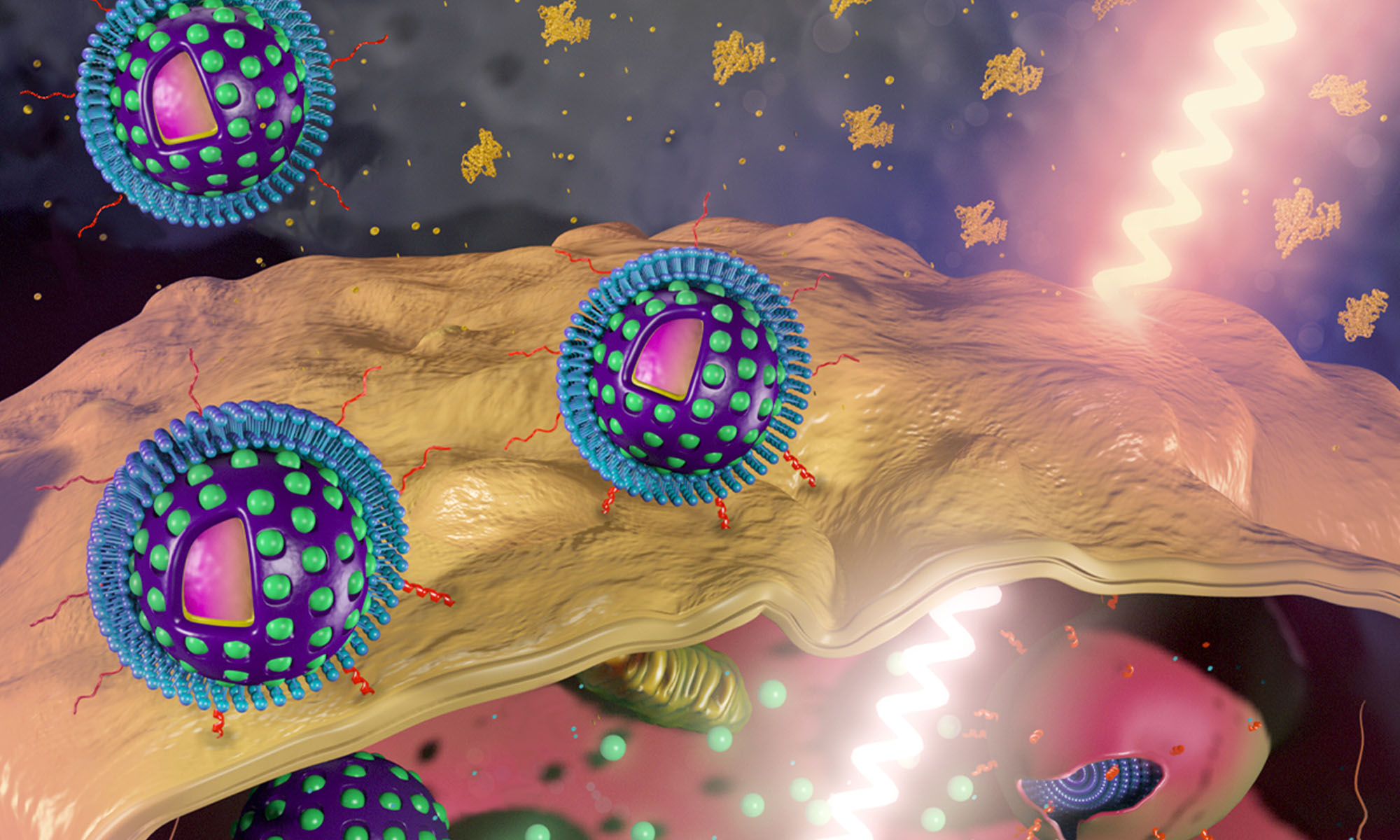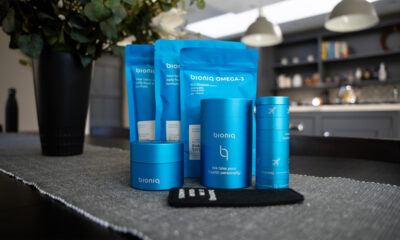News
NYU Abu Dhabi Develops Cancer-Fighting Nanospheres
The biotech breakthrough promises safer and more effective treatments using photodynamic and photothermal therapies.

A Research team from NYU Abu Dhabi’s Magzoub lab has made considerable advances in the fight against cancer using biocompatible nanospheres that have the potential to replace traditional forms of treatment.
The experiments trialed photodynamic therapy (PDT) and photothermal therapy (PTT), which use non-invasive light waves to destroy cancers, avoiding the well-known side effects of chemo and radiotherapy.
Photodynamic therapy works by releasing a torrent of reactive oxygen species (ROS) onto cancer cells, whereas photothermal therapy converts light into searing heat, destroying tumor tissues through hyperthermia.
The research team has detailed their findings in a paper entitled “pH-Responsive Upconversion Mesoporous Silica Nanospheres for Combined Multimodal Diagnostic Imaging and Targeted Photodynamic and Photothermal Cancer Therapy”. The literature goes on to explain how the nanospheres are able to protect encapsulated photosensitizers and photothermal agents from degrading, enabling them to be delivered directly to cancer cells.
Alongside thermal and fluorescent imaging, traditional magnetic resonance imaging (MRI) is also used for tumor detection and monitoring. Once cancer is detected, the PDT and PTT can kill tumors without leaving toxic traces in the body.
Also Read: Dubai Airport To Introduce Complete Biometric Admin System
Loganathan Palanikumar, a senior researcher in the NYUAD Magzoub lab, explained the process, “To make PDT effective, we need enough photosensitizer in the tumor tissue, while PTT requires a substantial accumulation of photothermal agents within tumors”.
Mazin Magzoub, NYUAD associate professor of biology and Magzoub lab leader, added, “New therapeutic approaches are desperately needed to enhance the existing arsenal of cancer-fighting treatments”.
Magzoub lab’s new treatments offer real hope that cancers could soon be treated with minimal stress and danger to patients, leading to a brighter future free from one of the world’s most feared and destructive diseases.
News
Mamo Completes $3.4M Funding Round To Enhance Fintech Services
The startup will use the influx of cash to expand into Saudi Arabia and across the wider GCC while improving its product offering.

UAE-based fintech Mamo has announced the completion of a $3.4 million funding round that will help the startup extend its market presence and improve its product offering. Investors included 4DX Ventures, the Dubai Future District Fund and Cyfr Capital.
Mamo’s platform offers “payment collection, corporate cards and expense management” to help small and medium-sized businesses consolidate and streamline their operations. With the latest influx of capital, Mamo will further develop its comprehensive suite of services and begin testing its product lines in Saudi Arabia, further extending its footprint across the GCC.
Imad Gharazeddine, co-founder and CEO of Mamo, stated: “We’ve been in the market for a while now and are incredibly proud of what our team has achieved. The holistic and expansive nature of our product offering has helped us continue to grow sustainably. This additional funding will allow us to reach our medium-term goals even faster. The support from new and existing investors is a testament to our strong expertise and the ability to deliver on our customer promise”.
Daniel Marlo, General Partner of lead investor 4DX Ventures, added: “We have immense trust in Imad’s vision, leadership and Mamo’s innovative approach to provide a user-friendly and comprehensive financial solution for SMEs that makes financial management more accessible and efficient. We are proud to partner with them and support their mission”.
Also Read: A Guide To Digital Payment Methods In The Middle East
Amer Fatayer, Managing Director of Dubai Future District Fund’s investment team, also commented: “Mamo’s localized product lines serve as an infrastructure for SME payments and spend management in UAE, a segment that is underserved by the country’s current banking infrastructure. The team has taken a product-first approach to consolidating SMEs’ financial journeys and building a fintech solution deeply embedded in a business’s core operations”.
To date, Mamo has raised around $13 million in investment funding and now boasts a team of 30 people. The company’s intuitive financial services platform has allowed over 1,000 businesses to consolidate their financial operations and significantly reduce payment fees.
-

 News4 weeks ago
News4 weeks agoAmazon Prime Day 2024: Get Ready For 6 Days Of Amazing Deals
-

 News4 weeks ago
News4 weeks agoSamsung Unpacked 2024: What To Expect From The July 10 Event
-

 News4 weeks ago
News4 weeks agoCoursera Report Shows Surge In UAE Interest In AI Upskilling
-

 News4 weeks ago
News4 weeks agoMeet Dubai’s Groundbreaking Smart Robot Delivery Assistant















